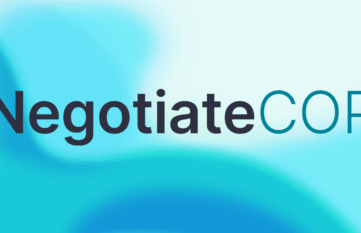Making a phone call, checking an email, taking a photo or scheduling an online meeting – all of these activities generate data that reflects our modern world in a variety of ways. The ability to understand and make targeted use of this data has the potential to fundamentally improve people’s lives.
Nevertheless, much of the available data remains unused. In Germany alone, around 80 percent of industrially generated data is currently not used. The Federal Ministry for Economic Cooperation and Development (BMZ) wants to change the situation. With its new data strategy, the ministry wants to ensure the availability and better use of relevant data in Germany and its partner countries in order to achieve the sustainability goals of the 2030 Agenda. But how will the strategy change everyday development cooperation in concrete terms – or to phrase it differently:
Imagine it is 2030: how have data and the BMZ data strategy improved life in our partner countries and the work of BMZ?
-

Due to the rapid progress of AI, forecasts up to 2030 are challenging. One thing is certain: the availability and flow of relevant data will have improved noticeably by then. To this end, we need to create a data infrastructure with the implementing organizations in order to jointly develop efficient processing of different types of data, such as geodata, economic figures, other key figures and, above all, the many reports in text form.
Data will facilitate evidence-based decisions, especially in areas such as agriculture, biodiversity, climate and urban and transport planning. We need to meet the challenges of global climate change as quickly as possible, primarily in terms of sufficient food, maintaining living conditions and limiting risks.
I hope that we can leverage one of the greatest strengths of AI for this task, namely its ability to handle large amounts of data better than humans. This should enable a new depth of analysis and prediction. This is where I expect to see the greatest benefits in terms of optimizing the effectiveness of our measures together with our partner countries.
-

The BMZ’s data strategy could make a significant contribution to developing effective solutions more quickly – for example, through the targeted collection and analysis of gender-specific data. An example of how this strategy can directly promote gender equality and inclusion. For instance, by collecting data on how the employment rate of women differs in different regions, we can develop tailored training and education programs that specifically address the needs of women in underserved areas.
So not only is data collected, but it is also used in a targeted way to improve the reality of women’s lives and create a more inclusive society. That’s what the data strategy is really about – using data to make concrete, positive change.
For the future, this means that we can integrate data even more into the policy design process. In addition, the private and public sectors will work more closely together to use new data sources for the common good.
-

I am convinced of the potential of data for development policy. In the data strategy, we describe how the responsible collection and use of data can contribute to sustainable and human-centered development. We want to work towards this in cooperation with our partner countries.
Let’s take a few examples: In the health sector, real-time data analysis can be used to prevent the spread of infectious diseases such as malaria. Transparent decisions can be made about where and when vaccines or medicines need to be distributed. Geodata and AI can be used to decide where to build schools or roads, and precise data collection can improve agricultural productivity in rural areas and establish effective water management. Not to mention the economic impetus provided by a functioning data economy in developing and emerging countries.
Cooperation within the BMZ and German development cooperation will also become more efficient through data exchange and new methods of evaluation. More efficient administration leads to more effective and transparent development cooperation, which sustainably improves life in our partner countries.
Background
The BMZ Data Strategy was published in September 2024 and builds on the German government’s Digital Strategy and the National Data Strategy. It aims to ensure that relevant data is available and used to achieve the SDGs of the Agenda 2030. Therefore, the strategy implements its goals across five different fields of action. Firstly, internal data management and the data culture are to be improved in order to generate and provide more data for development policy decisions. Secondly, partner countries are supported in using data in a self-determined and value-adding way. The BMZ is also aware of the risks that can result from analyzing large volumes of data as well as personal data and it is committed to a value-oriented approach to data.


